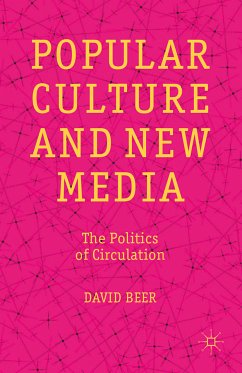
Premediation: Affect and Mediality After 9/11 (eBook, PDF)
Versandkostenfrei!
Sofort per Download lieferbar
40,95 €
inkl. MwSt.
Weitere Ausgaben:

PAYBACK Punkte
20 °P sammeln!
In an era of heightened securitization, print, televisual and networked media have become obsessed with the 'pre-mediation' of future events. In response to the shock of 9/11, socially networked US and global media worked to pre-mediate collective affects of anticipation and connectivity, while also perpetuating low levels of apprehension or fear.
Dieser Download kann aus rechtlichen Gründen nur mit Rechnungsadresse in A, B, BG, CY, CZ, D, DK, EW, E, FIN, F, GR, HR, H, IRL, I, LT, L, LR, M, NL, PL, P, R, S, SLO, SK ausgeliefert werden.












